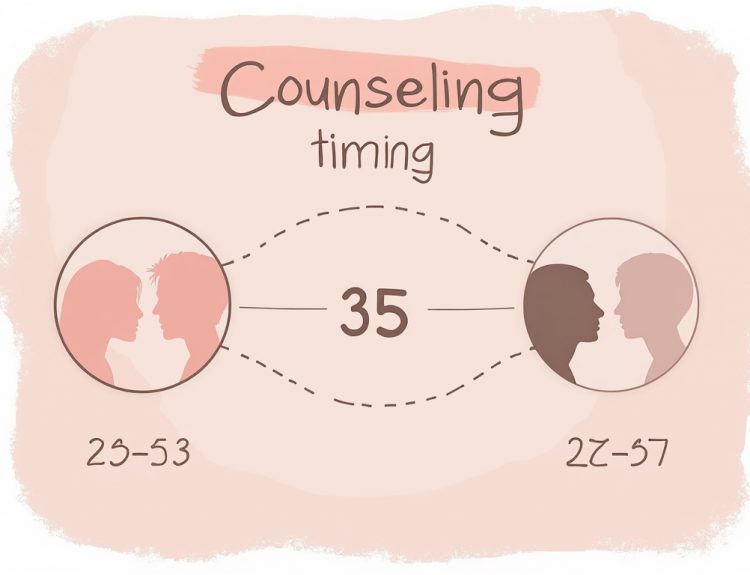
Why Conventional Marriage Wisdom Is Wrong: Research-Based Relationship Truths
Reading time: 12 minutes
Ever been told that “opposites attract” or that “you complete each other”? What if these romantic mantras are actually sabotaging your relationship success? Let’s dive into the fascinating world of relationship science and discover what actually creates lasting love connections in the modern era.
Table of Contents
- Debunking the Top Marriage Myths
- What Science Actually Reveals About Successful Relationships
- Navigating Contemporary Relationship Challenges
- Building Authentic Partnership Foundations
- Practical Implementation Strategies
- Your Evidence-Based Relationship Roadmap
- Frequently Asked Questions
Debunking the Top Marriage Myths
Let’s start with some straight talk: conventional marriage wisdom isn’t just outdated—it’s often counterproductive. Research from leading relationship scientists has systematically dismantled many beliefs we’ve held sacred for generations.
The “Opposites Attract” Fallacy
Here’s a reality check that might surprise you: similarity, not difference, predicts relationship success. Dr. Matthew Montoya’s comprehensive meta-analysis of 240 studies revealed that couples sharing similar values, interests, and personality traits report significantly higher satisfaction rates.
Case Study: Sarah and Mike met through a hiking club, sharing passions for outdoor adventures and environmental conservation. Initially, Sarah worried their similar personalities might create boredom. Five years later, their shared values became their relationship’s cornerstone during career transitions and family planning decisions.
Similarity vs. Difference Success Rates
The “Complete Each Other” Myth
The idea that your partner should “complete” you sounds romantic, but it’s relationship poison. Healthy relationships require two complete individuals choosing to share their lives, not two halves desperately seeking wholeness.
Research from the University of Rochester demonstrates that couples maintaining individual identities while building shared experiences report 67% higher relationship satisfaction compared to those who lose themselves in the relationship.
What Science Actually Reveals About Successful Relationships
Dr. John Gottman’s four-decade research with over 3,000 couples provides compelling insights that challenge conventional wisdom. His findings reveal specific, measurable factors that predict relationship success with 94% accuracy.
The Four Pillars of Lasting Love
| Success Factor | Traditional Belief | Research Reality | Impact Score |
|---|---|---|---|
| Conflict Resolution | Avoid arguments | Learn healthy arguing skills | 9.2/10 |
| Communication Style | Talk about everything | Quality over quantity | 8.8/10 |
| Shared Growth | Never change for anyone | Evolve together intentionally | 8.5/10 |
| Independence Balance | Do everything together | Maintain individual interests | 7.9/10 |
| Emotional Support | Be each other’s everything | Build support networks | 7.6/10 |
The Gottman Method: Predicting Success
Gottman’s research identified that successful couples maintain a 5:1 ratio of positive to negative interactions. This isn’t about toxic positivity—it’s about creating an emotional bank account where positive deposits significantly outweigh withdrawals.
Real-World Example: Jennifer and Carlos discovered their relationship was running a “negative balance” after tracking their interactions for one week. They found they criticized each other’s habits 3-4 times daily but rarely expressed appreciation. By consciously increasing positive interactions—expressing gratitude, sharing excitement about each other’s achievements, and offering unprompted support—they transformed their relationship dynamic within six weeks.
Navigating Contemporary Relationship Challenges
Modern relationships face unprecedented challenges that traditional advice simply can’t address. Digital communication, career flexibility, and evolving gender roles require updated relationship strategies.
The Digital Communication Revolution
Here’s what research reveals about digital communication in relationships: it’s not the medium, it’s the message quality that matters. Couples who use technology to enhance rather than replace face-to-face communication report higher satisfaction levels.
Strategic Digital Communication Tips:
- Quality over quantity: Three meaningful texts beat twenty check-ins
- Emotion clarity: Use voice messages for complex emotional topics
- Shared digital experiences: Watch movies together online, play games, share articles
- Boundaries matter: Establish phone-free zones and times
Career-First Relationships
With 73% of millennials prioritizing career development, successful modern relationships require flexible support systems. The old model of one partner sacrificing career goals for the relationship is giving way to dual-career navigation strategies.
Case Study: Dr. Amanda Chen and software engineer David built their relationship around career flexibility. When Amanda received a residency offer across the country, David negotiated remote work arrangements. Two years later, when David’s startup required intense travel, Amanda adjusted her schedule to maintain their connection. Their secret? Regular “career check-ins” where they align individual goals with relationship priorities.
Building Authentic Partnership Foundations
Authentic partnerships aren’t built on romantic fantasies—they’re constructed through intentional choices, mutual respect, and shared growth commitments.
The Individual-First Principle
Contrary to conventional wisdom suggesting relationships require sacrifice of self, research demonstrates that maintaining individual identity strengthens partnership bonds. Dr. Arthur Aron’s studies show that couples engaging in novel activities separately and together report higher satisfaction and lower divorce rates.
Practical Implementation:
- Pursue individual interests: Maintain hobbies, friendships, and goals independent of your partner
- Share growth experiences: Regularly discuss personal development and support each other’s evolution
- Create novel shared experiences: Try new activities together quarterly
- Respect boundaries: Honor your partner’s need for individual space and pursuits
Communication Evolution Strategy
Effective relationship communication isn’t about constant talking—it’s about intentional, skillful interaction. Research from UCLA demonstrates that couples who practice “active constructive responding” show 40% greater relationship satisfaction.
The Four Response Styles:
- Active Constructive (Best): “That’s amazing! Tell me more about how you achieved this!”
- Passive Constructive: “That’s nice.” (Missing emotional engagement)
- Active Destructive: “Are you sure that’s wise? What about the risks?”
- Passive Destructive: “Oh, I had a terrible day too…” (Hijacking the conversation)
Practical Implementation Strategies
Let’s transform research insights into actionable relationship enhancement strategies you can implement immediately.
The Weekly Relationship Audit
Successful couples don’t leave relationship health to chance—they actively monitor and adjust their connection. Implement a weekly 15-minute relationship check-in covering these areas:
- Appreciation sharing: What did your partner do this week that you valued?
- Challenge identification: What felt difficult or frustrating?
- Growth opportunities: How can you both improve next week?
- Connection planning: When will you prioritize quality time together?
Conflict Transformation Techniques
Arguments aren’t relationship killers—poor argument skills are. Dr. Susan Johnson’s Emotionally Focused Therapy research reveals that couples who learn healthy conflict resolution report stronger bonds after disagreements.
The STOP-LOOK-LISTEN Method:
- STOP: Pause when emotions escalate beyond productive levels
- LOOK: Identify the underlying need behind your partner’s position
- LISTEN: Reflect back what you heard before presenting your perspective
Your Evidence-Based Relationship Roadmap ️
Ready to transform conventional relationship wisdom into research-backed success? Here’s your practical implementation roadmap for building a thriving, authentic partnership in the modern world.
Immediate Action Steps (This Week):
- Audit your assumptions: Identify which conventional relationship beliefs you’ve been following without question
- Implement the 5:1 ratio: Consciously increase positive interactions while addressing necessary concerns constructively
- Schedule individual growth time: Block calendar time for personal interests and development
30-Day Transformation Plan:
- Master active constructive responding: Practice celebrating your partner’s successes with genuine enthusiasm
- Establish weekly relationship audits: Create a consistent time for checking in on relationship health
- Learn conflict transformation skills: Study and practice the STOP-LOOK-LISTEN method during disagreements
Long-term Partnership Evolution:
- Build shared meaning: Regularly discuss values, dreams, and life vision together
- Maintain growth mindset: Embrace change and evolution as individuals and as a couple
- Create support systems: Develop friendships and networks that enhance rather than threaten your relationship
The future of relationships isn’t about following outdated scripts—it’s about creating authentic connections based on scientific understanding and mutual respect. As digital communication continues evolving and career priorities shift, couples who embrace evidence-based relationship building will thrive while others struggle with obsolete advice.
Your next step: Which conventional relationship belief has been limiting your partnership potential, and how will you replace it with research-backed strategies this week?
Frequently Asked Questions
Does this mean I should completely ignore traditional relationship advice?
Not necessarily. Some traditional wisdom aligns with research findings—like the importance of commitment and communication. The key is distinguishing between evidence-based principles and romantic myths. Evaluate advice critically: does it encourage individual growth, healthy communication, and mutual respect? If yes, it likely has merit regardless of its traditional or modern origins.
How can I convince my partner to try these research-based approaches?
Start by modeling the behaviors yourself rather than trying to convince through argument. Implement active constructive responding, maintain your individual interests, and practice healthy conflict resolution. Most partners naturally respond positively to improved relationship dynamics. Share interesting research findings casually, and suggest trying new approaches as experiments rather than permanent changes.
What if our relationship problems seem too serious for these strategies?
While these evidence-based approaches benefit most relationships, serious issues like abuse, addiction, or major mental health challenges require professional intervention. Consider these strategies as relationship enhancement tools, not substitutes for therapy when deeper problems exist. A qualified relationship counselor can help you implement research-backed techniques within the context of your specific challenges.

Article reviewed by Krzysztof Wiśniewski, Mature Dating Advisor | Finding Love After 40, on May 29, 2025



